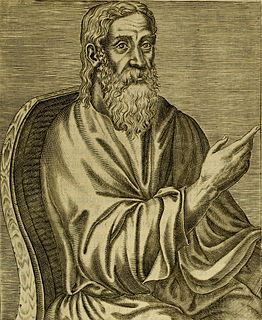A Quote by Philip K. Dick
The pre-Socratic Greek philosopher Parmenides taught that the only things that are real are things which never change... and the pre-Socratic Greek philosopher Heraclitus taught that everything changes. If you superimpose their two views, you get this result: Nothing is real.
Related Quotes
Five hundred years before Christ was born, the Greek philosopher Heraclitus told his students that "everything changes except the law of change". He said: "You cannot step in the same river twice." The river changes every second; and so does the man who stepped in it. Life is a ceaseless change. The only certainty is today. Why mar the beauty of living today by trying to solve the problems of a future that is shrouded in ceaseless change and uncertainty-a future that no one can possibly foretell?
The ancient Greek philosopher Epictetus taught his students that what happens to them is not as important as what they believe happens to them. In this engaging and provocative book, Eldon Taylor provides his readers with specific ways in which their beliefs can lead to success or failure in their life undertakings. Each chapter provides nuggets of wisdom as well as road maps for guiding them toward greater self-understanding, balance, responsibility, and compassion.
Cornelius Castoriadis, the great French social philosopher of Greek origin, was asked once by an exasperated interviewer: "What do you want, Mr. Castoriadis - to change humanity?" He answered: "No, God forbid, I only want humanity to change itself, as it has done so many times in the past." I would be inclined to answer the same way.






































